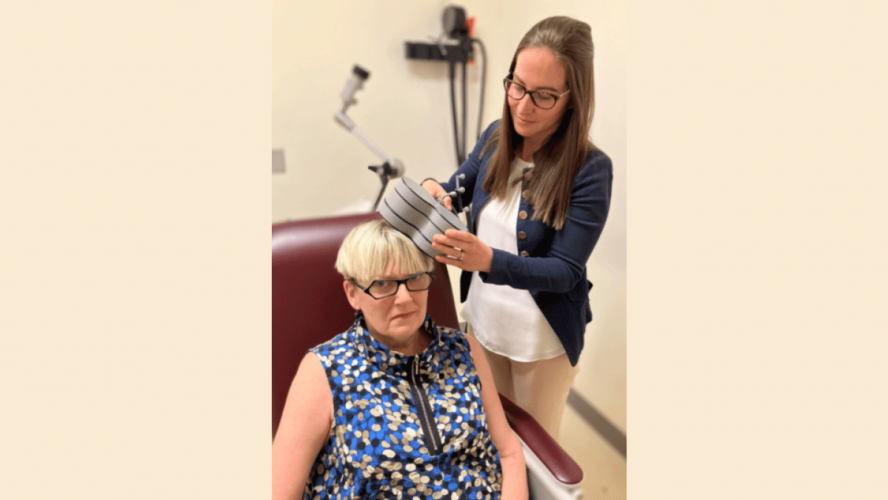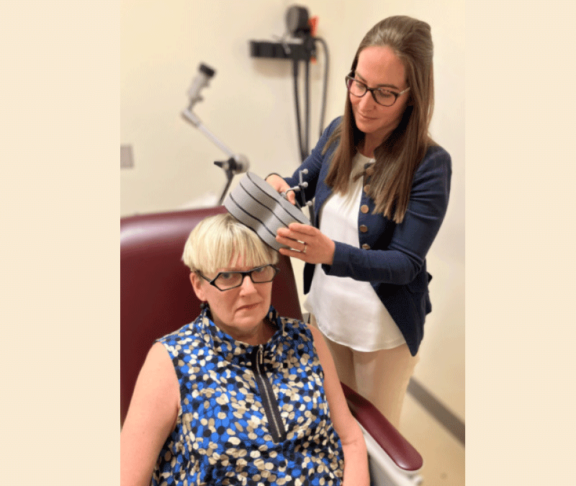With more Canadians struggling with depression and anxiety, the need for expanded knowledge and improved solutions has never been greater.
Canada is in the midst of a mental health crisis. One in three Canadians say they’re struggling with their mental health, especially depression and anxiety. Mental illness is the leading cause of disability. By the time people in Canada reach 40 years of age, one in two have or have experienced a mental health condition.
While there have been improvements in outcomes for cancer, HIV, and heart disease, Canada is losing ground and seeing significant declines in mental health. More basic brain research is necessary to understand how the brain functions in health, as well as in illness. It’s clear that one-size-fits-all treatments do not work for all and enhancing research capability will help provide answers to longstanding questions about brain function.
Investing in brain research nets results
Brain Canada is an organization devoted to moving bold brain research forward – including mental health research. It does this by supporting ground-breaking projects. This focus on scientific solutions has seen life-changing results for patients, such as Raija Hilska, who was diagnosed with bipolar disorder in 2003. Though she was managing her condition with medication, she became depressed during the pandemic, leading her to seek other solutions at the Royal Ottawa Mental Health Centre.
Hilska was referred to a study funded by Brain Canada that uses repetitive Transcranial Magnetic Stimulation (rTMS), a non-invasive therapy using magnetic pulses, to modulate the brain’s circuitry and treat depression. This research is led by neuropsychologist and neuroscientist Dr. Sara Tremblay. “It has helped me,” says Hilska, who described her moods as always being more down than up. “When you’re not feeling well, you tend to dwell on things. When you are able to control your brain, your thinking is more compact, and you are able to focus on things. I don’t look back as much as I used to,” she says after seven weeks in a rTMS study. Such promising results aren’t possible without Canada investing and prioritizing brain research.
She hopes that Brain Canada-funded research at The Royal will one day help make this relatively low-cost and non-invasive therapy (first approved by Health Canada for the treatment of depression in 2002) accessible and part of standard care for mood disorders, which affect as many as one in three Canadians in their lifetime. The therapy is not covered by most provincial health insurance plans.
Brain Canada’s work continues. This month, it announced the recipients of a multimillion-dollar research program to address the sex gap in basic mental health research. Often basic research studies focus on male subjects and falsely presume that results will be the same for female subjects — sex differences need to be addressed for better treatments.
“The inclusion of sex-specific biological considerations is instrumental in understanding the biological roots of mental health conditions,” says Dr. Viviane Poupon, President and CEO of Brain Canada. “We take great pride in supporting researchers who are at the forefront of addressing sex gaps in brain research.”
Learn more about how Brain Canada is keeping brain health at the forefront to benefit all Canadians at braincanada.ca.



